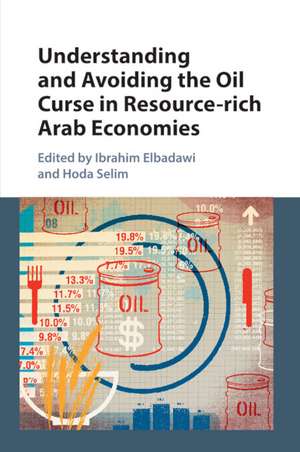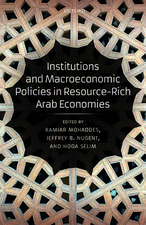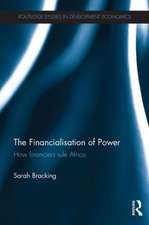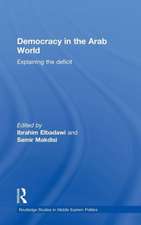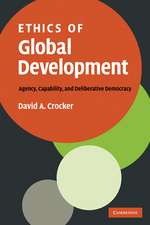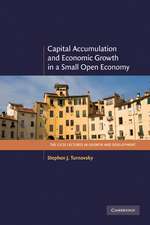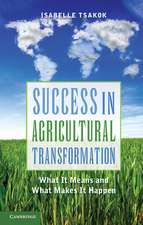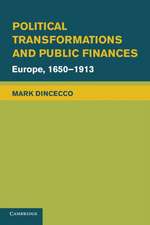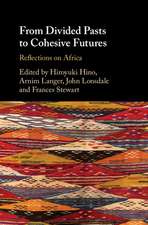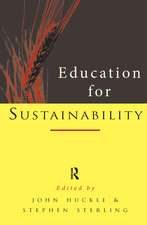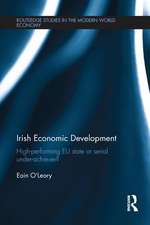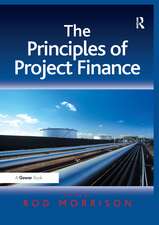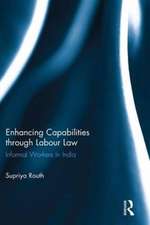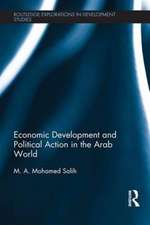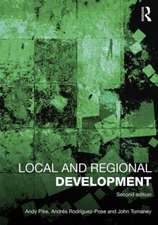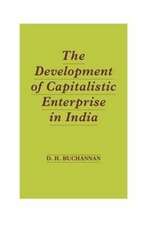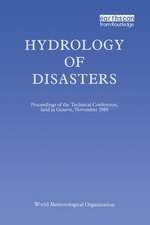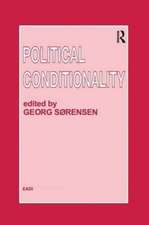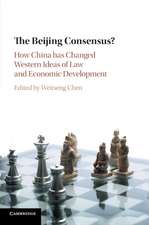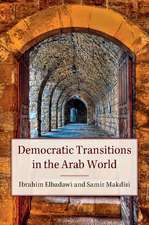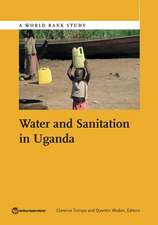Understanding and Avoiding the Oil Curse in Resource-rich Arab Economies
Autor Ibrahim Elbadawi, Hoda Selimen Limba Engleză Paperback – 15 mai 2019
| Toate formatele și edițiile | Preț | Express |
|---|---|---|
| Paperback (1) | 361.92 lei 6-8 săpt. | |
| Cambridge University Press – 15 mai 2019 | 361.92 lei 6-8 săpt. | |
| Hardback (1) | 900.31 lei 6-8 săpt. | |
| Cambridge University Press – 13 iul 2016 | 900.31 lei 6-8 săpt. |
Preț: 361.92 lei
Nou
Puncte Express: 543
Preț estimativ în valută:
69.25€ • 72.16$ • 57.34£
69.25€ • 72.16$ • 57.34£
Carte tipărită la comandă
Livrare economică 03-17 aprilie
Preluare comenzi: 021 569.72.76
Specificații
ISBN-13: 9781316506677
ISBN-10: 1316506673
Pagini: 496
Ilustrații: 97 b/w illus. 70 tables
Dimensiuni: 150 x 228 x 31 mm
Greutate: 0.72 kg
Editura: Cambridge University Press
Colecția Cambridge University Press
Locul publicării:New York, United States
ISBN-10: 1316506673
Pagini: 496
Ilustrații: 97 b/w illus. 70 tables
Dimensiuni: 150 x 228 x 31 mm
Greutate: 0.72 kg
Editura: Cambridge University Press
Colecția Cambridge University Press
Locul publicării:New York, United States
Cuprins
Foreword Ahmed Galal; Acknowledgements Ibrahim Elbadawi and Hoda Selim; 1. Overview of context, issues and summary Ibrahim Elbadawi and Hoda Selim; 2. The global impact of the systemic economies and MENA business cycles Paul Cashin, Kamiar Mohaddes and Mehdi Raissi; 3. Real exchange rates and export performance in oil-dependent Arab economies Ibrahim Elbadawi and Linda Kaltani; 4. Dutch disease in the services sector - evidence from oil exporters in the Arab region Ndiamé Diop and Jaime de Melo; 5. The political economy of public sector employment in resource-dependent countries Omer Ali and Ibrahim Elbadawi; 6. The oil curse and labor markets - the case of Saudi Arabia Hend Al-Sheikh and S. Nuri Erbas; 7. Resource rents, political institutions and economic growth Ibrahim Elbadawi and Raimundo Soto; 8. Fiscal institutions in resource-rich economies - lessons from Chile and Norway Klaus Schmidt-Hebbel; 9. Savings and investment decisions from natural resource revenues - implications for Arab development Paul Collier; 10. Labor market heterogeneity and optimal exchange rate regimes in resource-rich Arab countries Almukhtar Saif Al-Abri; 11. The institutional curse of natural resources in the Arab world Hoda Selim and Chahir Zaki; 12. Has the UAE escaped the oil curse? Raimundo Soto and Ilham Haouas; 13. Understanding and avoiding the oil curse in Sudan Kabbashi M. Suliman; Index.
Recenzii
'Expert scholars perceptively examine the issues posed by the double-edged sword of oil wealth. They take full account of differences among the Arab countries between those with high population and those with high wealth.' Jeffrey Frankel, Harvard University, Massachusetts
'The importance and significance of natural resource wealth to the economic performance and development of the many resource-rich Arab countries has been matched only by the severe paucity of serious economic research on the subject. This book fills such a gap and has been long overdue. Using solid research methodologies it investigates the economic, institutional and political economy dimensions of their varied development experience, and explores the policy implications for the use and management of the resource wealth.' Mustapha Kamel Nabli, former Governor of the Central Bank of Tunisia
'This is a profoundly important, state-of-the-art analysis of the challenges created by oil wealth in the Arab Middle East. It will be required reading for both policymakers and citizens seeking a better path forward.' Michael L. Ross, University of California, Los Angeles
'The importance and significance of natural resource wealth to the economic performance and development of the many resource-rich Arab countries has been matched only by the severe paucity of serious economic research on the subject. This book fills such a gap and has been long overdue. Using solid research methodologies it investigates the economic, institutional and political economy dimensions of their varied development experience, and explores the policy implications for the use and management of the resource wealth.' Mustapha Kamel Nabli, former Governor of the Central Bank of Tunisia
'This is a profoundly important, state-of-the-art analysis of the challenges created by oil wealth in the Arab Middle East. It will be required reading for both policymakers and citizens seeking a better path forward.' Michael L. Ross, University of California, Los Angeles
Notă biografică
Descriere
A variety of perspectives from leading economists provides fresh insight into how Arab countries may best exploit their oil revenues.
